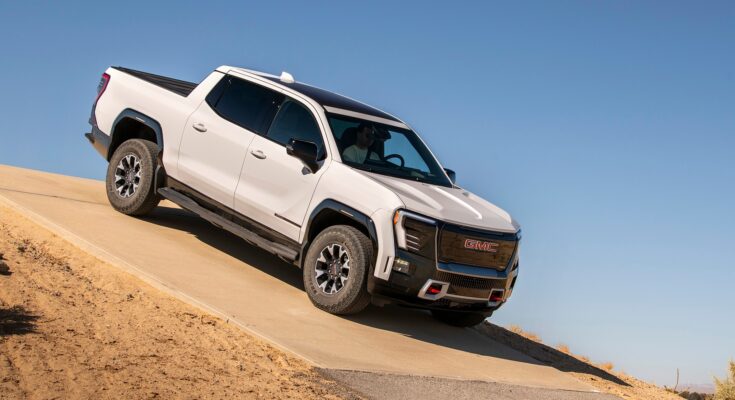Understanding the Role of a Car Insurance Lawyer
A car insurance lawyer in Alabama specializes in the complex intersection of personal injury law and insurance contract disputes. They are not merely litigators; they are negotiators, legal strategists, and client advocates who navigate the specific challenges posed by Alabama’s unique legal landscape. Their primary role is to represent your interests against insurance companies, whether it’s your own provider acting in bad faith or the at-fault party’s insurer refusing a fair settlement. They handle all legal communications, interpret policy language, investigate the accident thoroughly, calculate the full extent of your damages, and build a compelling case to maximize your financial recovery. This allows you to focus on medical treatment and recovery while they manage the legal complexities.
Alabama’s Contributory Negligence Rule: A Critical Factor
The single most important reason to hire a car insurance lawyer in Alabama is the state’s strict contributory negligence law. This is a harsh doctrine that bars a injured party from recovering any compensation if they are found to be even 1% at fault for the accident. Insurance adjusters are highly skilled at manipulating statements and evidence to assign a small degree of fault to you, thereby denying your entire claim. An experienced Alabama car insurance lawyer anticipates these tactics. They meticulously gather evidence from the scene, secure witness statements, consult accident reconstruction experts, and present a bulletproof case establishing the other driver’s sole negligence. Their expertise is your best defense against the contributory negligence rule.
The Initial Consultation and Case Evaluation
The process begins with a consultation, which is almost always free. During this meeting, the lawyer will listen to your account of the accident and review any evidence you have, such as the police report, photos, and initial insurance correspondence. They will ask detailed questions to understand the specifics of your case, including the nature of your injuries, the vehicles involved, and the insurance policies at play. The attorney will then provide a preliminary assessment of your claim’s viability, explaining how Alabama’s laws apply to your situation. This is your opportunity to ask questions about the lawyer’s experience, their fee structure (typically contingency-based), and the potential timeline of your case. There is no obligation to hire them after this meeting.
Investigation and Evidence Gathering
Once retained, your lawyer will immediately initiate a comprehensive investigation. This is a critical phase where they act as a detective for your case. Their actions will include formally requesting the official Alabama Peace Officer’s Accident Report, collecting all medical records and bills related to your injuries, subpoenaing traffic camera or business surveillance footage, identifying and interviewing eyewitnesses, and retaining expert witnesses such as accident reconstructionists or medical specialists. They will also obtain and carefully analyze all relevant insurance policies to understand coverage limits, exclusions, and potential avenues for recovery, including underinsured motorist (UIM) coverage.
Dealing with Insurance Companies Directly
A primary benefit of hiring a lawyer is that they become your sole point of contact with all insurance companies. They handle all calls, emails, and letters, shielding you from the pressure and manipulative tactics of adjusters. Your attorney will prepare and submit all necessary documentation, including the formal demand letter, which is a detailed package sent to the at-fault party’s insurer. This demand letter outlines the facts of the case, the legal basis for liability, a full accounting of your economic damages (medical expenses, lost wages), and non-economic damages (pain and suffering), supported by evidence. This formal demand initiates serious settlement negotiations.
The Negotiation Process and Settlement
Insurance companies rarely offer a fair settlement on the first attempt. Your lawyer will engage in a series of negotiations, countering lowball offers with evidence and legal arguments. They understand the true value of your claim and will not pressure you to accept an inadequate offer. This process can take weeks or months, as each side presents its valuations and supporting evidence. Your attorney will advise you on every settlement offer, explaining the pros and cons and providing a recommendation, but the final decision to accept or reject an offer always rests with you. The vast majority of car insurance claims are resolved during this negotiation phase without ever filing a lawsuit.
Litigation: When a Lawsuit Becomes Necessary
If negotiations break down and the insurance company refuses to offer a fair settlement, your lawyer will advise filing a lawsuit. This involves drafting and filing a complaint in the appropriate Alabama civil court, officially initiating the litigation process. The case then enters the discovery phase, where both parties exchange information through interrogatories (written questions), requests for production of documents, and depositions (sworn, out-of-court testimony). Your lawyer will prepare you thoroughly for your deposition and defend it vigorously. They will also file necessary motions with the court and continue to seek a settlement throughout the litigation process, as most cases still settle before trial.
The Contingency Fee Structure
Car insurance lawyers in Alabama almost always work on a contingency fee basis. This means you pay no upfront legal fees or retainers. The attorney’s fees are calculated as a pre-agreed percentage (typically between 33% and 40%) of the financial recovery they secure for you, either through a settlement or a court award. If they do not win your case, you owe them no attorney fees. This structure provides access to high-quality legal representation regardless of your financial situation and aligns your lawyer’s interests directly with your own—they only get paid if you get paid. It is crucial to discuss the exact percentage and what costs (filing fees, expert witnesses, etc.) are covered by the fee during your initial consultation.
What Your Lawyer Will Need From You
To build the strongest possible case, your lawyer will require your full cooperation. This includes providing a complete and truthful account of the accident and your injuries, signing medical authorizations so they can obtain your records, keeping them informed of any new medical treatments or developments, preserving all evidence you have, being honest about any pre-existing conditions, and adhering to your medical providers’ advice. It is also imperative that you refrain from discussing your case with anyone else, especially insurance adjusters from the opposing side, and that you do not post anything about the accident or your injuries on social media, as these posts can be discovered and used against you.
Potential Outcomes and Recovery
A successful outcome can take several forms. The most common is a negotiated settlement with the insurance company, resulting in a financial payout that covers your medical bills, lost income, property damage, and pain and suffering. In some cases, if your own insurer acted in bad faith, a separate claim may yield additional damages. If your case goes to trial and you win a verdict, the court will order the defendant to pay compensation. In rare cases, punitive damages may be awarded if the defendant’s conduct was especially egregious. Your lawyer will ensure all liens (such as those from health insurers) are negotiated down and resolved before you receive your final settlement check.

